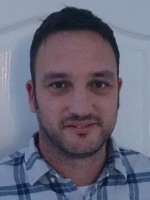The 'shoulds and oughts' game
How often do we say to ourselves "I should have done this" or "I ought to be able to do that" or the many other statements we make that are setting a standard above what we can reasonably reach? How many times do we then become hard on ourselves when we don't reach it?
This way of thinking can cause us to feel anxious and stressed (among other things) and all because we are trying to think or feel or do things we "should" think, "should" feel, or "should" do. How often when we are saying these things to ourselves do we challenge them? Would it not be more productive for us to say "I could have done it this way", or "I will be able to do that", and if we don't succeed try to work on steps to reach the goal we want to reach?
Playing this game robs us of our choices and power to stand in our own shoes. Whose standards are we trying to reach with these "shoulds" we throw around in our heads so often? Is it some figure from our past who would have done it differently, or told us our way isn't the 'right' way? Do we now live to that standard and punish ourselves if we fail to reach it?
Was it repeated instances growing up that told us we aren't good enough as we are, which become internalised beliefs about the person we are and the way we "should" be?
These questions can, and do, live in our heads day in day out, often without us even realising it. Those doubts and insecurities we developed through this way of thinking become repressed, lay dormant until something triggers them, often something we "should have differently".
It's a game. Most of us play it. If we stopped playing, if we told ourselves WE are in control of what we do, there is no "should", no "ought", would we then learn to accept our limits. Would we then be able to live according to our own means and truths and not that of others?
Worth a try?

Find the right counsellor or therapist for you
All therapists are verified professionals
